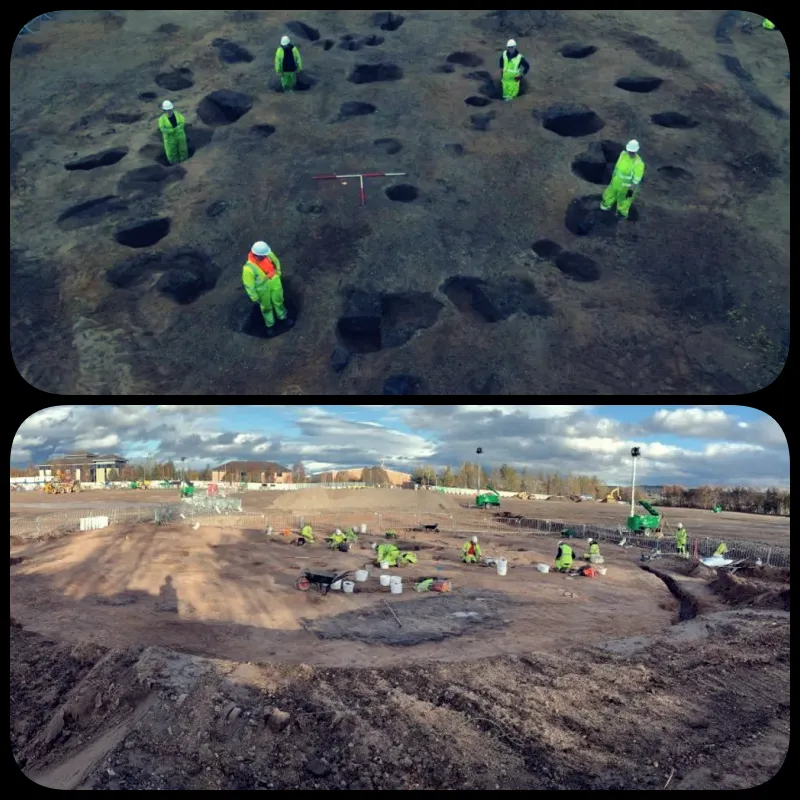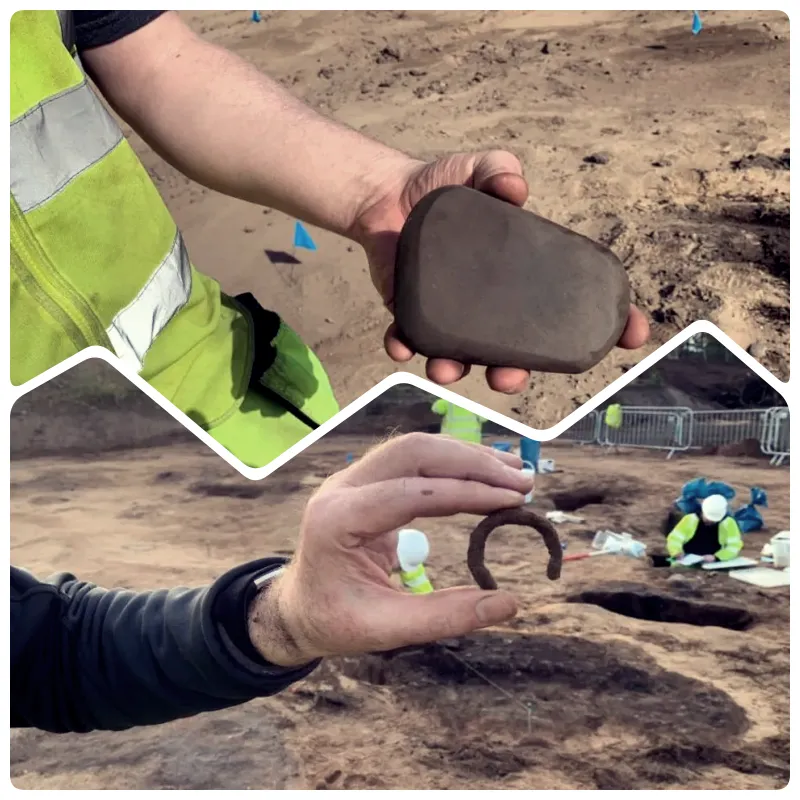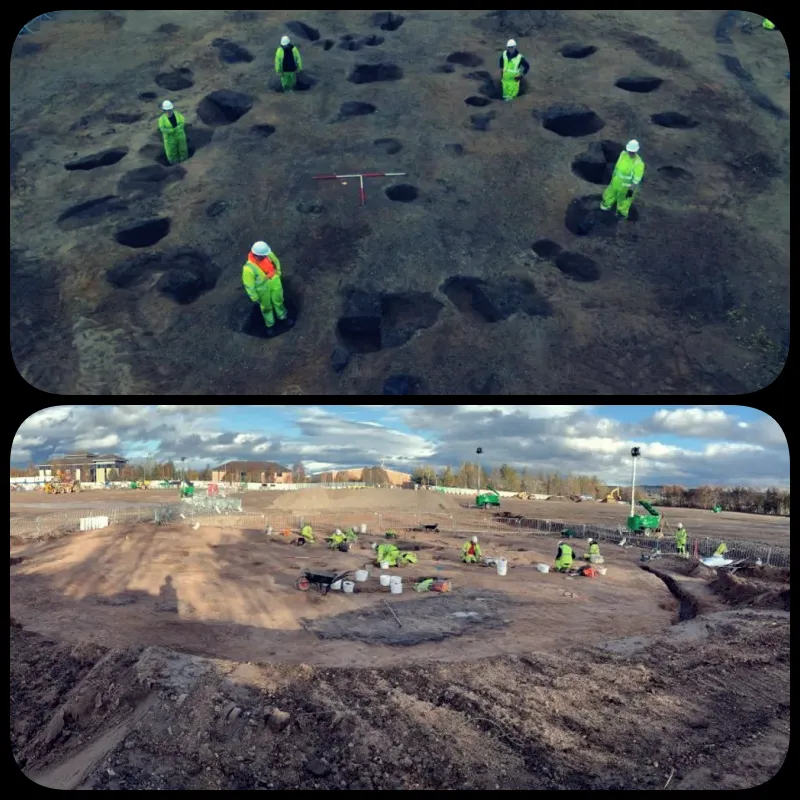
“Unveiling the Past: 2,000-Year-Old Prehistoric Settlement Found Amid New Prison Development”
In an intriguing twist to the construction of HMP Highland in Inverness, archaeologists have uncovered a remarkable 2,000-year-old prehistoric settlement at the site. This discovery sheds light on the Iron and Bronze Ages, providing a fascinating glimpse into ancient life before the site transforms into a modern correctional facility.
A Glimpse into Ancient Life: During the first phase of development for HMP Highland, evidence of 16 roundhouses has been uncovered, revealing a complex and well-established settlement from millennia ago. These roundhouses, some of which were protected by palisade fencing, showcase a sophisticated design with timber posts that supported substantial structures.
Archaeologists have found an array of intriguing artefacts, including clay moulds, copper-alloy materials, and metal tools, some potentially dating back up to 3,000 years. These discoveries suggest that the site may have been used for making weapons, such as swords, during the Bronze Age. Other notable finds include iron and copper-alloy metal objects, stone whetstones for sharpening tools, querns for grinding grain, pottery, and worked flint.

A Collaborative Effort: The excavation, conducted by AOC Archaeology Group in collaboration with contractors UBCivils and Balfour Beatty, was carried out on behalf of the Scottish Prison Service (SPS). Mary Peteranna from AOC emphasized the importance of this collaboration: “The support from Scottish Prison Service was crucial in safeguarding the archaeology and ensuring the results are accessible to the public. This discovery is a significant part of Inverness’s cultural heritage.”
Community and Historical Impact: Lorraine Roughan, SPS project executive for HMP Highland, highlighted the significance of the find: “This discovery underscores the historical importance of the site to the Inverness community, linking our past with the present.”
The new HMP Highland is set to replace the aging Inverness Prison, which has served the area for over 120 years. Although the new facility is expected to house 200 prisoners, the project has faced delays and cost overruns, with completion now projected to be six years behind schedule and four times more expensive than initially estimated.
Looking Forward: As the excavation progresses, the finds from the prehistoric settlement will continue to offer valuable insights into ancient life in Inverness. This unexpected discovery enriches the historical narrative of the region, providing a meaningful connection between the past and the future of the site.




